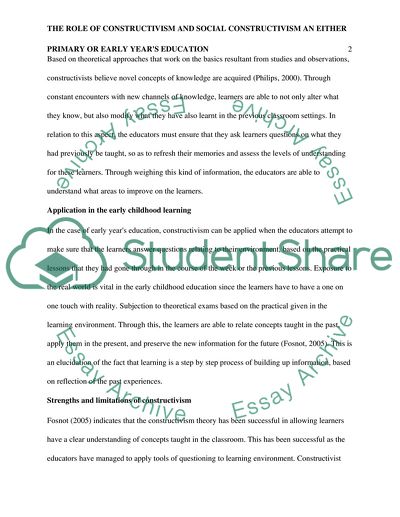Cite this document
(“Constructivism and social constructivism Essay Example | Topics and Well Written Essays - 1500 words”, n.d.)
Constructivism and social constructivism Essay Example | Topics and Well Written Essays - 1500 words. Retrieved from https://studentshare.org/education/1595935-constructivism-and-social-constructivism
Constructivism and social constructivism Essay Example | Topics and Well Written Essays - 1500 words. Retrieved from https://studentshare.org/education/1595935-constructivism-and-social-constructivism
(Constructivism and Social Constructivism Essay Example | Topics and Well Written Essays - 1500 Words)
Constructivism and Social Constructivism Essay Example | Topics and Well Written Essays - 1500 Words. https://studentshare.org/education/1595935-constructivism-and-social-constructivism.
Constructivism and Social Constructivism Essay Example | Topics and Well Written Essays - 1500 Words. https://studentshare.org/education/1595935-constructivism-and-social-constructivism.
“Constructivism and Social Constructivism Essay Example | Topics and Well Written Essays - 1500 Words”, n.d. https://studentshare.org/education/1595935-constructivism-and-social-constructivism.


